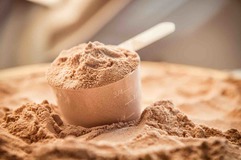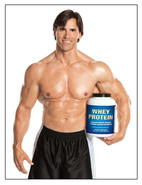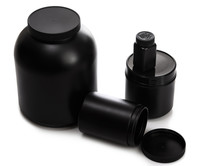As most of you already know, whey protein powder is by far one of the most talked about and sought-after supplements on the market. It’s been touted as a “muscle-builder,” or “meal-replacement.” Apparently if you want to look like Mr. Olympia, you need to take, “Whey Isolated Mega Mass Matrix Compound 2.0.”
All jokes aside, do you really know why you’re taking protein powder? Or rather, why you’re interested in it in the first place?
Below, I’ve put together a “quick and dirty” information compilation for all of you looking to take the next step with protein:
1. What it is
Whey Protein is a dairy product. Whey protein is a dairy product. Whey protein is a dairy product.
It is a byproduct of cheese production. When the milk curdles, the solid portions are used for cheeses, while the liquid portion is the byproduct in which whey arises. Given that it’s a dairy product, it has trace amounts of fats and lactose. Most adults are lactose intolerant, so keep this in mind if you have a lactose sensitivity.
2. What protein does
The macronutrient “protein” is responsible for a number of jobs within the body, most of which revolve around “growth”-- this includes tissue repair, enzyme and hormone production, maintaining proper immune function, and of course, the aforementioned “muscle building.” “Protein” is comprised of a wide variety of amino acids, the “building blocks” of protein.
What’s nice about whey protein is that it provides the 9 “essential” amino acids; meaning, the amino acids the body won’t naturally produce, but requires for sustenance. So sometimes the average adult’s diet may be lacking in protein. Having a quick, liquid protein source makes having an adequate protein intake just that much easier. It’s also nice to have when you want to sip on something post-workout that digests quickly and easily, instead of feeling weighed down by a solid meal.
3. Things to consider about the protein powder you buy
There are a million and one protein powders out there and most are probably promising you huge muscles and fat-loss. This can be encouraging to many people, and intimidating to others who aren’t trying to be “mass-monsters.” Many supplement companies market to the alpha-male hiding in every male, persuading them to get big and strong. Don’t forget, their product is going to get you there!
But what about those companies catering to women? Selling “meal-replacement” shakes that can build “tone” muscle? Or maybe build “trim” muscle? As far as I know, muscle is muscle. Clever marketing doesn’t change that.
The point here is that anyone’s fitness goal is to “build muscle.” It doesn’t matter if you’re trying to be huge or simply be a little leaner and have more noticeable muscle than you have already. Training styles, calorie intake, and of course, adequate protein intake, will get you there. Now that we understand this,
4. Assess your goal and find a protein to match it
This can be a fitness goal, budget goal, taste goal, ethical goal (looking at you, vegans), or any other multitude of goals. Assess it first, then ask the right questions. These may look like so:
a. Does this have enough servings in it to last me a long time?
b. How many servings will I have per day? Per training day?
c. Does this taste like crap?
d. How much does it cost per serving, and can these previous parameters be substantiated?
e. Am I training for performance? Is my need for post-workout carbohydrates vital?
f. If I want to put on weight, is this high in carbohydrates?
g. If I only want protein and am not looking for carbs, is this loaded with sugar?
h. If this is whey, and I’m a vegan, should I be trying soy protein?
i. Is this protein filled with stuff I can’t pronounce?
Will adding whey protein powder to your food intake make you an elite athlete? No.
Will adding whey protein powder to your food intake make you the strongest person in the gym? No.
Will adding whey protein powder to your food intake make you lose weight? In itself, no.
As part of assessing your goal, you must realize what you’re training for. Then, address your solid-food diet to reach that goal. Then, if you’re finding it difficult to maintain that kind of protein intake, perhaps invest in a constructive protein powder. The bottom line is that whey protein isn’t a miracle goal-reaching supplement. It’s a supplement. You know, to “supplement” a proper exercise and diet protocol. Whey protein powder really is an easily digestible, accessible, convenient, complete protein source that can do a body good post-workout. It can also be a great way to add protein to meals otherwise lacking in it. But if you’re just getting into the fitness habit, feel free to brush up on a good, wholesome diet and learn constructive exercise mechanics first. Then once you’ve reached the “intermediate” or “advanced” experience level, perhaps consider supplementing with whey protein. You've gotta walk before you can run!




 RSS Feed
RSS Feed
